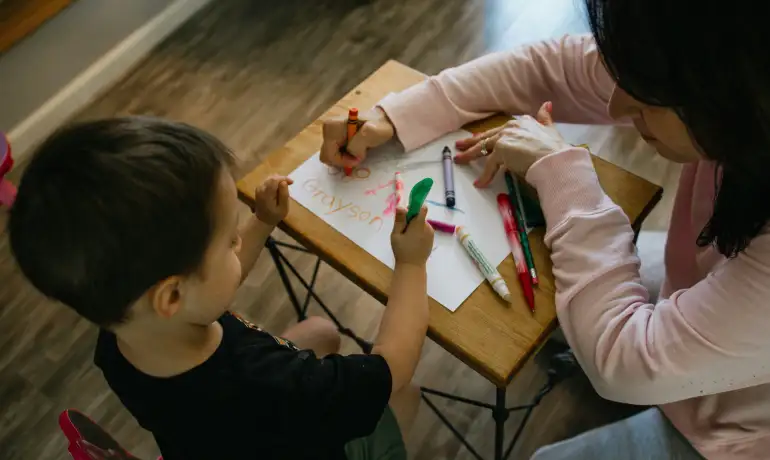Introduction
Singapore childcare hours impact academics—this topic has sparked growing concern among parents and educators alike. If you’re a parent in Singapore, you may have heard about studies suggesting that longer childcare hours can affect your child’s academic performance and behavior. In particular, some recent findings have pointed out that spending more than 40 hours a week in childcare may negatively impact academic results. This has become a hot topic for many parents searching for balance between work and family life.
But while the headlines focus on outcomes, it’s just as important to consider what hasn’t been discussed. What are the blind spots in current research? What else should parents know to make well-rounded decisions?
In this article, we’ll explore seven important gaps in existing research on Singapore childcare hours impact academics. Whether you’re a working parent, stay-at-home caregiver, or somewhere in between, these insights will help you better understand the full picture.
Long-Term Impact Is Still Unknown
Many studies on Singapore childcare hours impact academics only follow children during their preschool years. We don’t yet have solid data on what happens later—when these children enter primary school, grow into teens, or even become adults.
Could early extended childcare help build resilience? Or might it lead to long-term fatigue or reduced motivation? These are important questions, but so far, they remain unanswered. Parents should be cautious about assuming short-term results will last.
Childcare Quality Matters – But It’s Overlooked
The number of hours is easy to measure. But quality of care—which can vary dramatically from center to center—is much harder to study.
What your child experiences during those hours matters greatly. A 9-hour day filled with warm teachers, outdoor play, and creative learning is not the same as a day spent in a passive or overstimulating environment.
Unfortunately, many studies on Singapore childcare hours impact academics don’t include quality as a factor. When reviewing research, always ask: was the care high-quality?
Learn more about choosing the right infant care Singapore option.

Age-Specific Effects Aren’t Addressed
A 3-year-old and a 6-year-old have very different needs. Younger children may require more naps, shorter structured learning, and more emotional support.
But most research combines all preschoolers into one group, making it unclear whether long hours affect toddlers and kindergarteners differently. This gap leaves parents without age-specific guidance when making scheduling decisions.
If you want to dive deeper into age-based development, check out this overview from Harvard’s Center on the Developing Child.
The Role of Parents at Home Is Missing
Many researchers overlook what happens after pick-up time. But evenings and weekends are prime opportunities for bonding, learning, and recovery.
A child who spends 45 hours a week in childcare might still thrive with strong emotional support at home. On the flip side, a child in care for fewer hours could struggle without parental presence or structure.
When evaluating how Singapore childcare hours impact academics, we need to include the whole environment, not just time spent in the center.
Children’s Mental Health Gets Little Attention
Most studies emphasize behavior and academic scores. But how do children feel after long days?
Mental health in early childhood is crucial. Signs of stress—like irritability, sleep disruption, or emotional withdrawal—are often overlooked.
Parents should watch for subtle signs of overwhelm, even if academic progress looks fine on paper.
Educators’ Perspectives Are Absent
Teachers are with your child every day. They see how children behave after lunch, at pick-up, or when transitions are hard. Yet their voices are rarely featured in research studies.
Including teacher feedback could deepen our understanding of how Singapore childcare hours impact academics and behavior. As a parent, don’t hesitate to ask educators what they notice about your child’s energy and learning patterns.
Peer Interactions Are Overlooked
Childcare isn’t just about learning—it’s a social world. Children form friendships, face conflicts, and develop their communication skills during long hours with peers.
More time in care means more social exposure. This can be a strength or a source of stress, depending on how it’s managed. Sadly, few studies factor in the quality of these peer relationships.
If you’re worried about social development, talk to your childcare provider about how your child interacts with others. It’s another important layer in understanding how Singapore childcare hours impact academics.
Frequently Asked Questions (FAQ)
Q: What is the recommended number of childcare hours per week?
There’s no one-size-fits-all answer. Research suggests outcomes are generally positive up to 35-40 hours per week. Beyond that, some children may experience academic decline or emotional fatigue.
Q: Can high-quality childcare offset long hours?
Potentially, yes. A nurturing, stimulating environment can support learning and well-being, even with extended hours. However, this depends on the individual child and the specific center.
Q: How do I know if my child is coping well?
Watch for changes in behavior, mood, sleep, or appetite. Check in with teachers and trust your own instincts. If your child seems overwhelmed, consider adjusting the schedule.
Final Thoughts
The conversation around how Singapore childcare hours impact academics is still evolving. While research provides valuable insights, it doesn’t cover everything that matters.
Every child is different. As a parent, you bring unique knowledge and love that no study can replicate. Combine that with open communication with teachers, ongoing observation, and trust in your instincts—and you’ll be well equipped to make the best decisions for your child.

To explore more early education support or to speak with an experienced team, visit Little Unicorn Preschool or contact us here.



